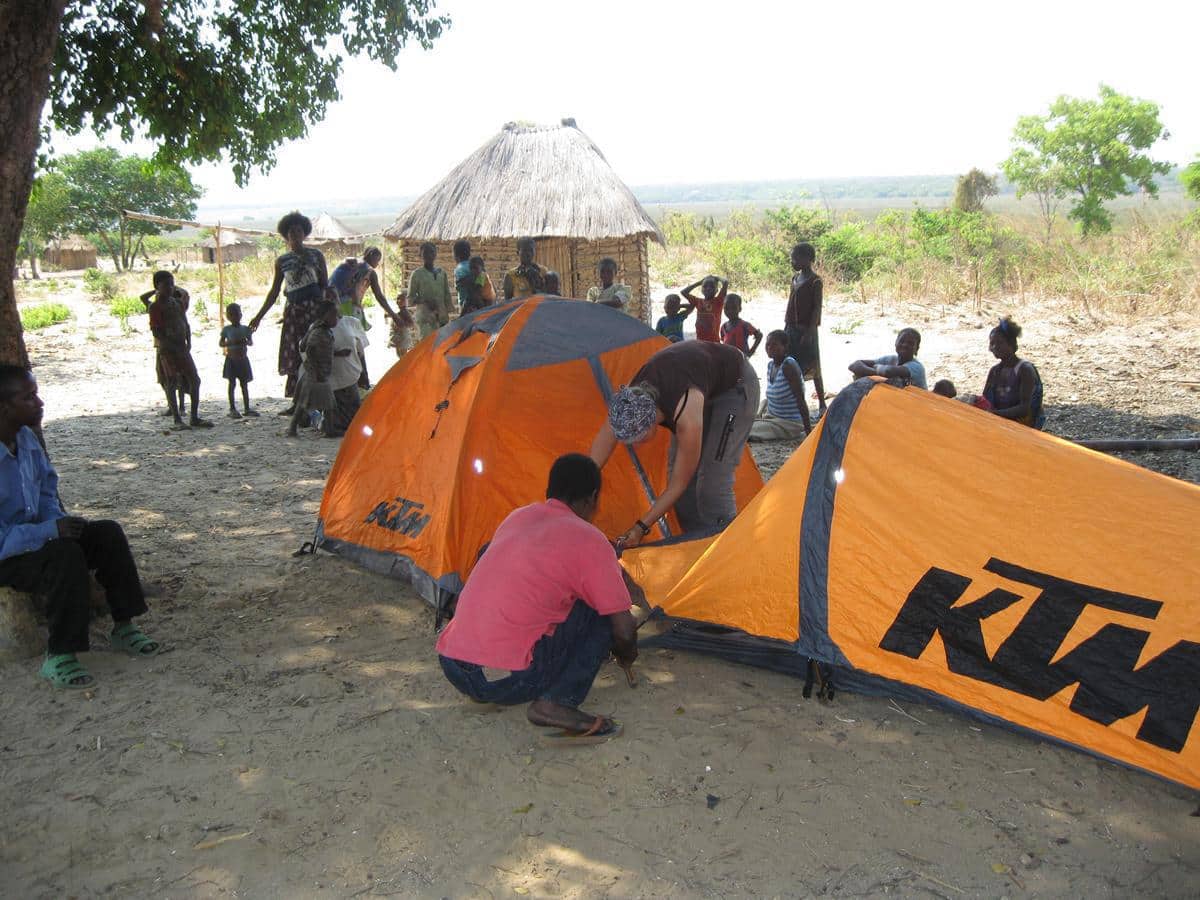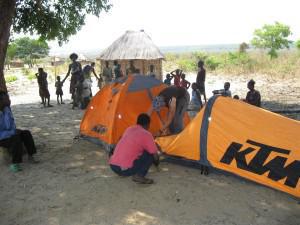An unfortunate incident can really spoil your long-awaited holiday therefore we would advise you to consider a few general points on safety and precaution. These simple things can make the difference between keeping or getting yourself out of trouble or ending up in a very unfortunate situation.
Rule number one
Rule number one for travelling anywhere in Africa is to be as well informed as possible. Before your trip, read up as much as possible about the areas which you will be visiting. There are various overland forums on the internet where you can ask experienced travellers just about anything you need to know.
There also are some excellent guide books available that will give you important safety information.
Carry with you
Carry your passport as well as copies of all your documents with you at all times. Do not leave it in your tent or wherever you stay.
Your travel partner should know where you keep extra copies of your important information like emergency contact numbers, just in case something happens to you.
Personal safety
You should use good common sense when you travel. Basically the same can be said for any country in the world: A lot of people = a lot of crime. Therefore you should be more cautious when you are in cities.
Remember that you are a welcome target if you leave your handbag or camera equipment lying openly in your car, especially if you leave your vehicle unattended. Avoid displaying flashy jewelry and carrying your camera around your neck. Rather carry it in a camera bag over your shoulder.
When you camp, you should rather take your personal belongings with you into the tent at night, especially if the campsite is in or close to a village or town. In case you have a breakdown or accident and you cannot reach your planned destination, it is better not to pitch your tent right next to the road where everybody can see you.
It is always best to pack your loose camping equipment away at night as you never know if a wind will come up during the night.
Insurance
Make sure you have appropriate medical and vehicle insurance before you leave, and that your vehicle insurance includes vehicle recovery.
Keep the contact numbers for your personal insurance with you. Remember that you cannot phone other countries’ toll free numbers from outside the country, so ensure that you have direct numbers.
It is advisable to contact your medical aid/insurance prior to your trip to obtain a document which states what you are covered for and what the claim procedure is if you are in a foreign country.



Dear Tracks4Africa followers
My husband and I are visiting South Africa for 3 weeks end of February-first half of March. Years ago we did Namibia equipped with rooftop tents and Tracks4Africa maps, and we just loved it. Botswana is also on our bucket list, but awaits until our son who just took on his first job, can take a 2-3 week holiday. I went ahead and picked out a superb 4×4 rental vehicle with tents and started to look into sites to visit in South Africa and routes to follow out of Jo’burg. I kept wondering if I would be able to do a true off-the-beaten route in SA out of Jo’burg.
This weekend we called our South African friends and they strongly discouraged us of such a camping trip. Too dangerous ! In SA you should, because of safety concerns, just rent a car and stay in lodges, hotels, B&B, etc. Safer and not more expensive.
What are the recommendations of this community? Follow this advice for SA? Which other destination outside of SA would you recommend? Which places in SA are suitable for camping?
Baie dankie !
Hilde
Hi Hilde. Camping in South Africa is really very safe. For camping in Gauteng I would recomment camping in National parks – like the Kruger National park and then the other parks of SANPARKS, they are really very safe.. But I would recommend you venture towards the Cape. We have many beautiful and safe camping sites all over the Cape. SANPARKS have national parks in the Cape area too, and Cape Nature offers camping sites in the Cederberg. I would also suggest you join our Forum, the community will be able to give you nice advise there. See: https://tracks4africa.co.za/social/#forum.